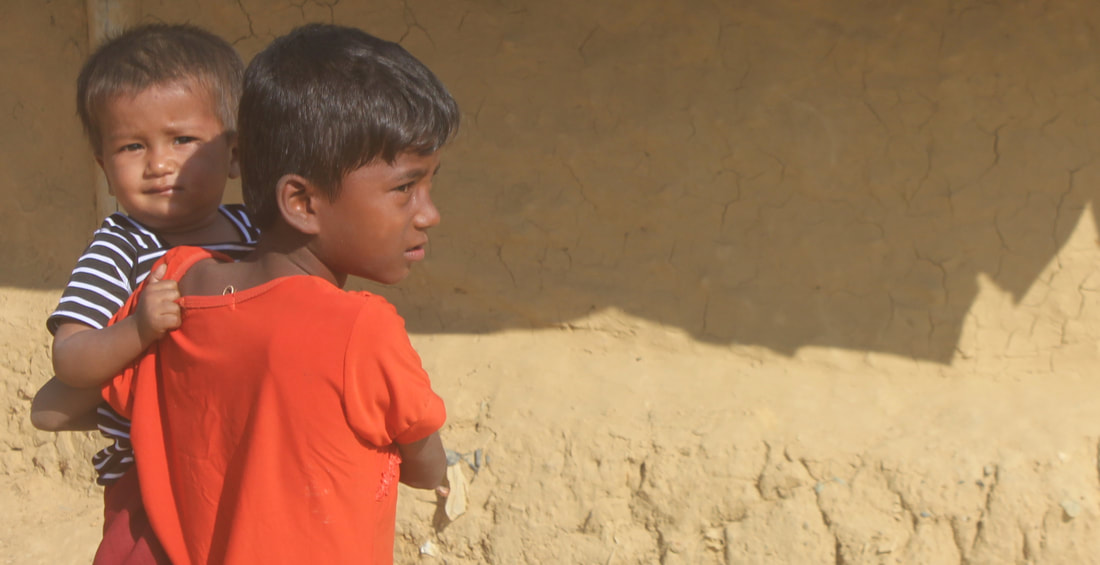|
Children on the Edge are currently seeking financial support to provide immediate humanitarian support for Rohingya refugee families in Bangladesh.
A catastrophic rise of violence and ethnic cleansing in Rakhine State, Myanmar has forced over 400,000 Rohingya across the border into Bangladesh into makeshift refugee camps and local communities. These already impoverished communities, who are still taking stock of recent flood damage, are ill-equipped to host scores of traumatised new arrivals. The BBC report that despite larger aid agencies arriving with humanitarian aid, the government has forbidden distribution outside of the official camps. These camps can support only 70,000 of the estimated 400,000 refugees, leaving hundreds of thousands to fend for themselves with no support at all. 60 percent of these arrivals are children, and many Rohingya refugees say they have had no contact with any international aid agency at all. Children on the Edge are uniquely placed to respond to the current crisis and meet the needs of these most vulnerable refugees. We have seven years of experience working within the Rohingya community in an unregistered camp on the Bangladesh border. This work has been highlighted as a ‘Promising Practice’ in a recent report to the UN General Assembly, recommending best practice in refugee education for the sector. We have built up strong local partnerships over this time, and these partners are best situated to provide support to unreached refugees through their skills, experience and networks. Due to the limited help available in the official camps, many new arrivals go on to seek refuge further inland, in urban slums or enclave communities which are already comprised almost entirely of other Rohingya migrants. These areas are outside of the scope of the UN and larger agencies, and it is here that Children on the Edge is currently concentrating its efforts. Over the past few weeks alone, 50,000 Rohingya have sought shelter in the slum areas of Cox’s Bazar. In these communities, we are responding to both the immediate relief needs of the new arrivals as well as preparing to provide services once the crisis passes and world's attention turns elsewhere. Given that there are already 200,000 newly-displaced, vulnerable children along the border, it is difficult to overstate the scale of the need. In response, we will provide essentials such as rice, clean water, latrines and tarpaulin along with cash transfers to new arrivals in slum and enclave communities. By safeguarding the refugee’s water supply, protecting their health from unsanitary waste, providing basic shelter, and ensuring they have enough to eat, this programme will protect the lives of thousands of the most vulnerable Rohingya in this crisis. In addition, we aim to build 20 safe spaces within these communities. These safe spaces will be child-friendly environments, where 1,200 severely traumatised children can go to re-establish a sense of normalcy, through a daily routine with trained and trusted adults. Here they can play, learn, receive a nutritious snack each day and begin to process what they have been through. Our safe spaces will also give parents and carers a few hours each day, in the knowledge that their children are safe, to start finding solutions to their problems. They can use this time to search for work and food, find lost family members and begin to process what the future might hold. Support usComments are closed.
|
RECEIVE OUR EMAILSBlog Categories
All
Archives
July 2024
|
|
JOIN US ON SOCIAL MEDIA
|
Annual Report | Contact Us | Jobs | Media Centre | Resources | Shop
Accessibility & Policies: Accessibility | Equity, Diversity & Inclusion Policy | Complaints| Privacy Policy | Safeguarding
Accessibility & Policies: Accessibility | Equity, Diversity & Inclusion Policy | Complaints| Privacy Policy | Safeguarding
Children on the Edge, 5 The Victoria, 25 St Pancras, Chichester, West Sussex, PO19 7LT, UK | 01243 538530 | [email protected]



 Give monthly
Give monthly Fundraise for us
Fundraise for us RSS Feed
RSS Feed
